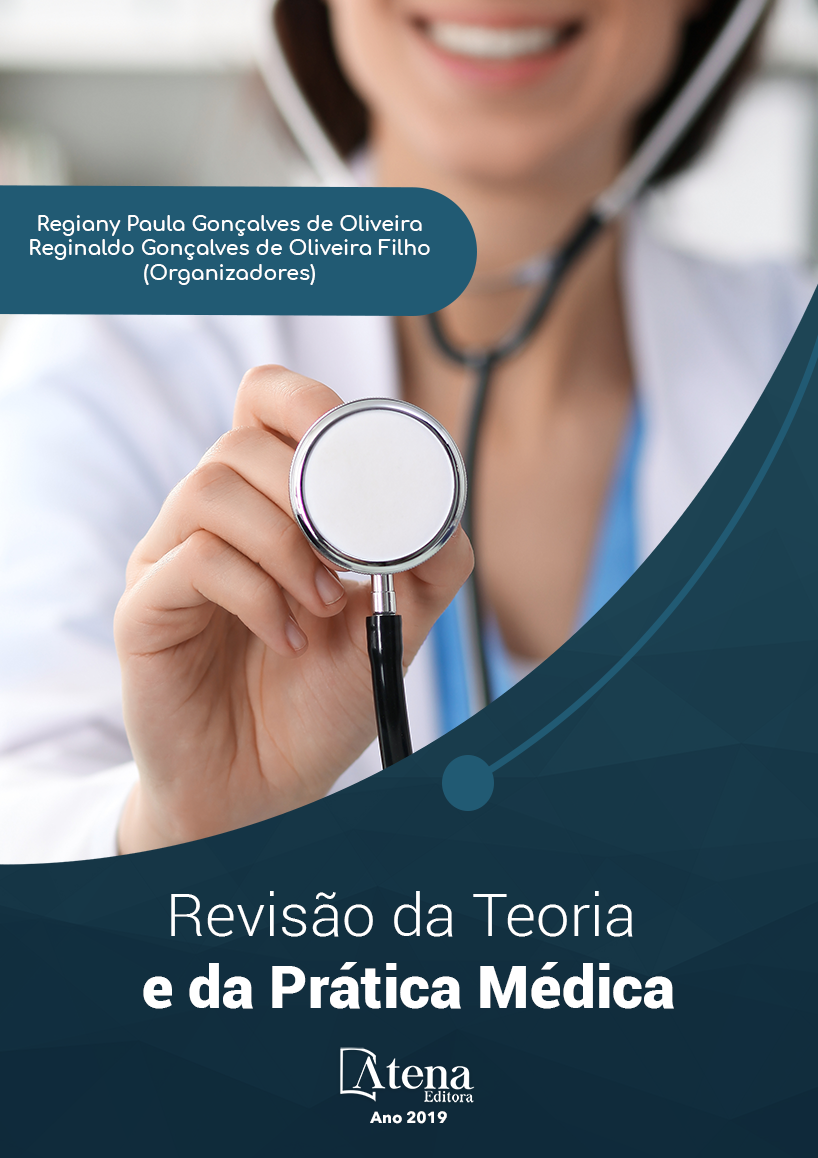
SUSPEIÇÃO DE TRANSTORNOS MENTAIS ENTRE MULHERES USUÁRIAS DO PROGRAMA HIPERDIA EM UMA UNIDADE BÁSICA DED SAÚDE EM OLINDA.
O campo das Ações Básicas de
Saúde ganhou destaque desde 1994 com a
criação do Programa de Saúde da Família e a
sua transformação posterior em Estratégia de
Saúde da Família (ESF). Em termos clínicos,
destacam-se os Hipertensão Arterial Sistêmica
e Diabetes mellitus, tanto que o Ministério da
Saúde publicou a Portaria 371/GM instituindo o
Programa Hiperdia nas UBS (Unidades Básicas
de Saúde). O objetivo do estudo é pesquisar o
perfil sociodemográfico e de transtornos mentais
entre mulheres integrantes do Hiperdia em
Unidades Básicas de Saúde em Olinda. Foram
aplicados o Questionário Sociodemográfico
e o Questionário de Morbidade Psiquiátrica
em Adulto (QMPA), que sugere a suspeição
de transtornos mentais. É uma pesquisa
quantitativa, descritiva e transversal, tendo
como sujeito 33 indivíduos do sexo feminino dos
Grupos Hiperdia das 03 equipes de Unidade
de Saúde da Família Cohab Peixinhos e de
Jardim Brasil II. Os casos suspeitos são todos
de donas de casa (100%); viúvas (42,4%); 61
a 70 anos (33,3%); EFI (45,5%); evangélicas
(39,4%); "do lar" (33,3%); 2 salários mínimos
(66,7%). Existe uma relevante prevalência de
transtornos mentais entre pacientes mulheres
no Hiperdia nas comunidades de Olinda,
Pernambuco, o que afeta de forma direta a sua
qualidade de vida e funcionamento. A atenção
primária tem papel fundamental na adesão e
tratamento dessas pacientes, buscando sempre
a integração entre paciente e família, havendo
assim uma resposta mais efetiva ao tratamento
e reduzindo os riscos de complicações advindas
da hipertensão e diabetes mal curadas.
SUSPEIÇÃO DE TRANSTORNOS MENTAIS ENTRE MULHERES USUÁRIAS DO PROGRAMA HIPERDIA EM UMA UNIDADE BÁSICA DED SAÚDE EM OLINDA.
-
DOI: 10.22533/at.ed.06519030914
-
Palavras-chave: atenção primária à saúde; saúde mental; hipertensão arterial; diabetes mellitus; saúde da mulher.
-
Keywords: primary health care; mental health; arterial hypertension; diabetes mellitus; women's health.
-
Abstract:
Among the movements proposed
by the Unified Health System, the field of Basic
Health Actions has gained prominence since
1994 with the creation of the Family Health Program and its subsequent transformation
into the Family Health Strategy (ESF). In terms of clinical aspects, the most prominent
are the Hypertension Systemic and Diabetes mellitus, so much so that the Ministry of
Health published Ordinance 371 / GM instituting the Hyperdia Program in the Basic
Health Units (UBS). To study the sociodemographic profile and mental disorders among
women members of HiperDia in Basic Health Units in Olinda. The field of Basic Health
Actions has gained prominence since 1994 with the creation of the Family Health
Program and its subsequent transformation into a Family Health Strategy (ESF). In
clinical terms, Systemic Arterial Hypertension and Diabetes mellitus stand out, so much
so that the Ministry of Health published Ordinance 371 / GM instituting the Hiperdia
Program in the UBS (Basic Health Units). The objective of the study is to investigate
the sociodemographic profile and mental disorders among women members of
Hiperdia in Basic Health Units in Olinda. The Sociodemographic Questionnaire and the
Psychiatric Morbidity Questionnaire in Adult (QMPA), which suggested the suspicion
of mental disorders, were applied. It is a quantitative, descriptive and cross-sectional
study, with 33 female subjects from the Hiperdia Groups of the 03 Health Care Units
of the Cohab Peixinhos and Jardim Brasil II Family Health Units as subjects. The
suspect cases are all housewives (100%); widows (42.4%); 61 to 70 years (33.3%);
EFI (45.5%); evangelicals (39.4%); "home" (33.3%); 2 minimum wages (66.7%). There
is a relevant prevalence of mental disorders among female patients in Hiperdia in
the communities of Olinda, Pernambuco, which directly affect their quality of life and
functioning. Primary care plays a fundamental role in the adherence and treatment of
these patients, always seeking integration between patient and family, thus providing
a more effective response to treatment and reducing the risks of complications arising
from poorly healed hypertension and diabetes.
-
Número de páginas: 15
- Moab Duarte Acioli
- Mariana Beatriz Silva Torres Galindo
- Bárbara Azevedo Neves Cavalcanti
- Gabrielle Lins Serra
- Mariana Torres Galindo


